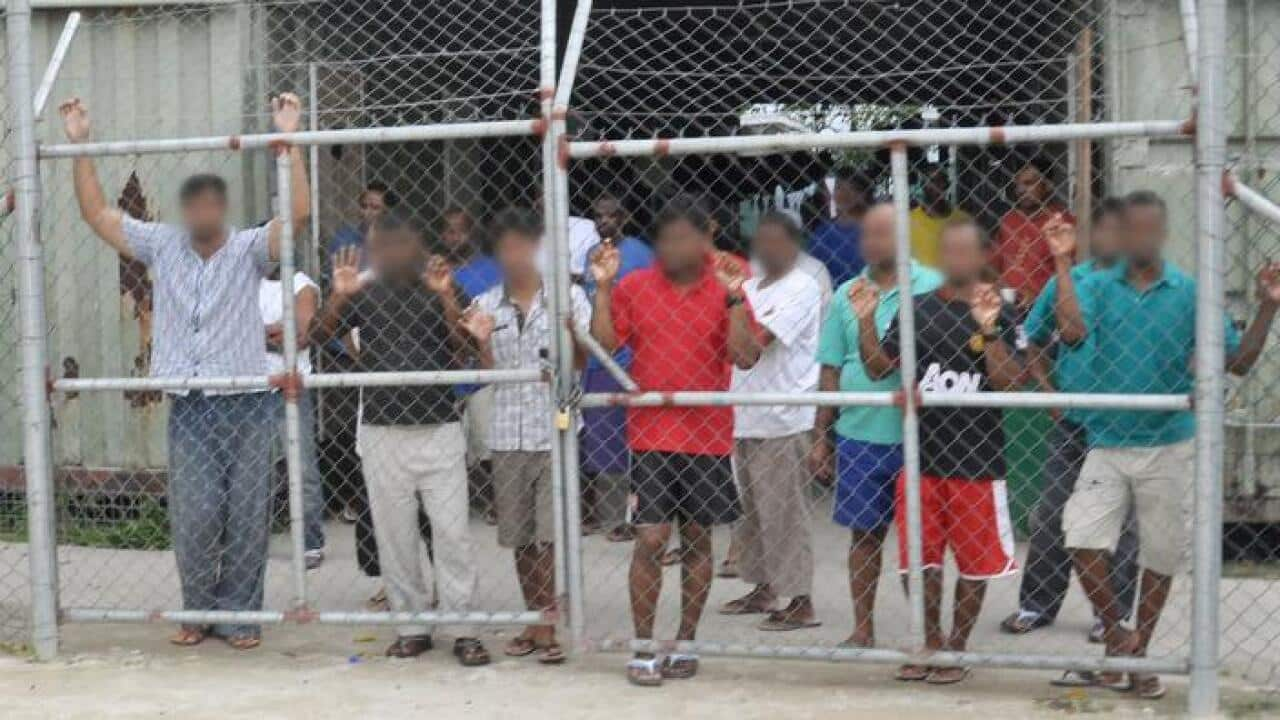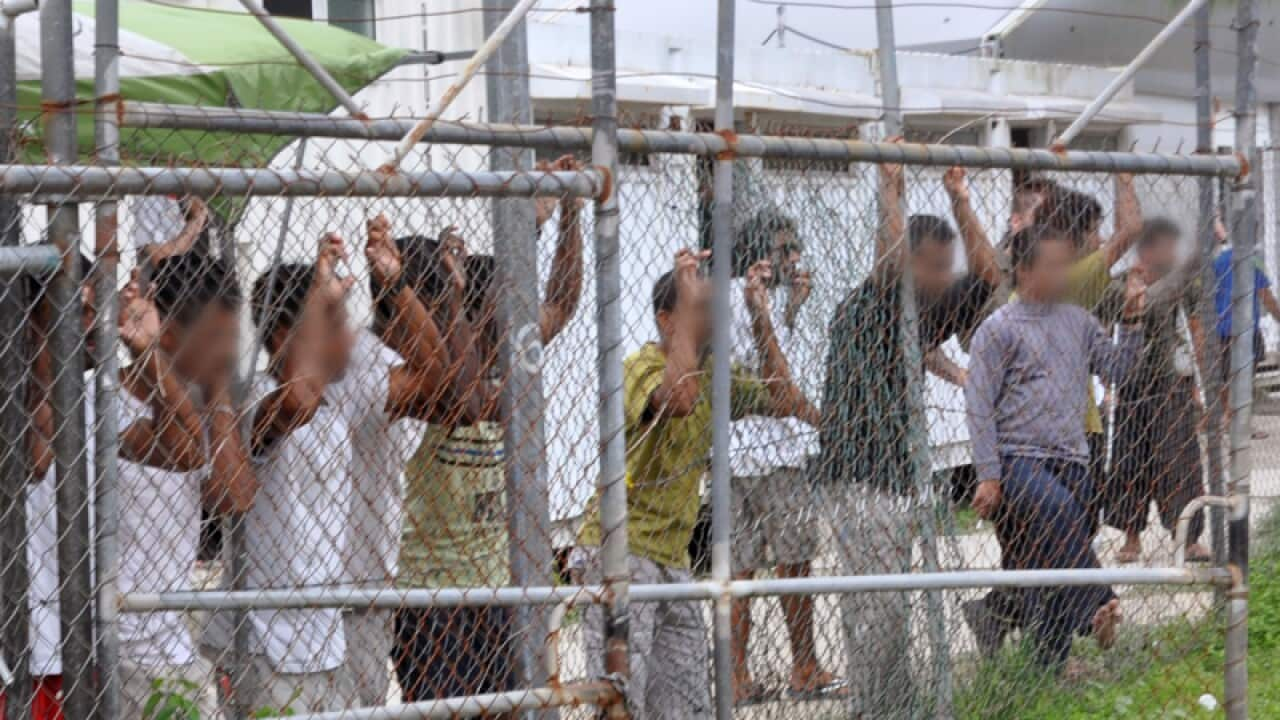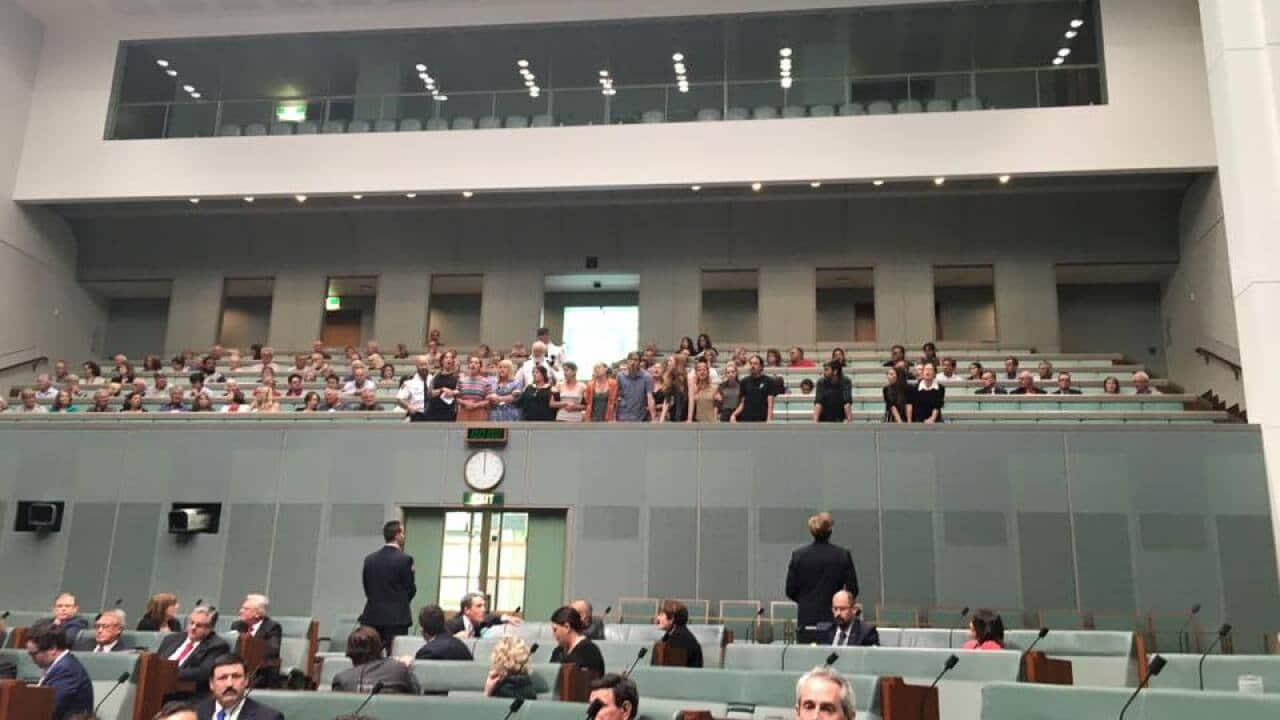Labor has called on Malcolm Turnbull to reveal the strings attached to Australia's deal with Donald Trump to resettle asylum seekers from Nauru and Manus Island and how new US immigration bans will impact on Australian travellers.
The prime minister on Sunday spoke on the phone with the US president during which time Mr Trump confirmed he would honour a deal for America to take in vetted asylum seekers from the two Australian-funded offshore facilities.
Treasurer Scott Morrison said Mr Turnbull was very pleased Australia had been able to secure the deal.
"They're both business people aren't they and they know a deal's a deal," the former immigration minister told 2GB's Ray Hadley.
"This is an extraordinary achievement from Malcolm Turnbull as prime minister, who has been able to secure the continuance of this arrangement under President Trump."
Related reading

Trump to honour Australian refugee deal
There was some initial doubt whether Mr Trump would honour the agreement, given the president's ban on taking in people from seven countries which he said were "sources of terror".
Labor deputy leader Tanya Plibersek said the government needed to remove the "shroud of secrecy" from the Nauru and Manus deal and say what had been committed to as part of the deal.
The prime minister also needed to explain how the US ban would impact on Australian citizens and permanent residents who were born in Iran, Iraq, Syria, Sudan, Libya, Yemen or Somalia.
"We've seen the UK Prime Minister Theresa May make clear that she does not support this travel ban," Ms Plibersek told reporters in Sydney on Monday.
"It would be, I think, very important for the Australian government to make a clear statement about its view on this discriminatory travel ban."
The executive order bars people from the seven Muslim-majority nations from entering the US for the next 90 days and suspends the admission of all refugees for 120 days.
Ms Plibersek said Australia's non-discriminatory immigration policy had served the country well for four decades.
Greens senator Sarah Hanson-Young challenged Mr Turnbull to condemn the presidential order.
"Turnbull's refusal to condemn Trump's immigration chaos is beyond spineless," she said on Twitter.
Former prime minister Kevin Rudd said it would make the fight against terrorism more difficult.
"I fear impact of Friday's change in US immigration policy on ISIS future global recruitment and probability of further terrorist attacks in US," Mr Rudd said on Twitter.
There are also critics from within Mr Trump's own Republican party.
Chairman of the US Senate committee on armed services and former presidential candidate John McCain said in a statement the confusion at American airports showed the order was "not properly vetted".
"We should not stop green-card holders from returning to the country they call home. We should not stop those who have served as interpreters for our military and diplomats from seeking refuge in the country they risked their lives to help.
"And we should not turn our backs on those refugees who have been shown through extensive vetting to pose no demonstrable threat to our nation, and who have suffered unspeakable horrors, most of them women and children."
Senator McCain said it would also become a "self-inflicted wound in the fight against terrorism".
US Homeland Security secretary John Kelly released a statement saying green card holders from the seven countries on the banned list would be allowed into the United States.
"I hereby deem the entry of lawful permanent residents to be in the national interest," he said.
One Nation senator Malcolm Roberts said many Australians would support a Trump-style immigration policy.
"A government's primary responsibility is to protect life, property, and freedom," he told 3AW radio on Monday.
"We can't afford to bring more terrorists into this country."












